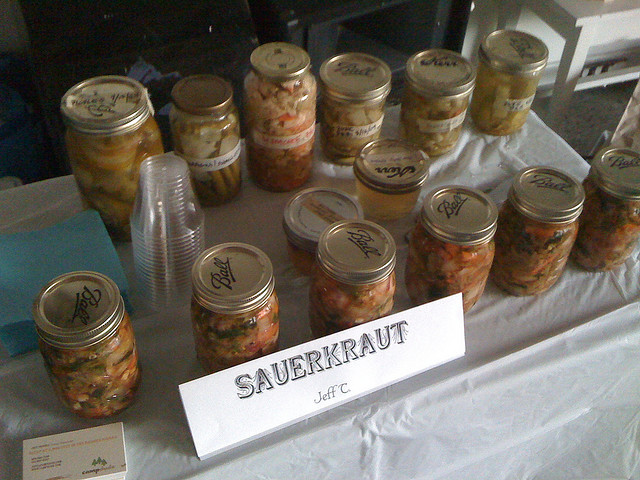The market was created to avoid the red tape that keeps many small-time food operations from getting off the ground. The founder of the market explains how it will move on after the red tape got slapped back on.

For the past two years, the S.F. Underground Market, a members-only event in San Francisco, has catered to vendors who can't afford (or can't be bothered) to deal with conventional farmer's market bureaucracy. The market has ballooned from an event in a private home with eight vendors and 200 attendees to a warehouse gallery event with 47 vendors and over 1,200 people attending. It has played host to quirky vendors with names like the Meat Baller and the Pizza Hacker. And now the San Francisco Department of Public Health has shut it down. What does this mean for budding food entrepreneurs?
It's not easy to get a food startup going; vendors have to pay at least $1,000 a year just for health permits, liability insurance, and other food safety laws required by farmer's markets. And good luck getting a spot at a farmer's market if you sell foraged food--in many farmers markets, vendors have to be certified as the primary producer of the food that they're selling, which is an impossibility if the products grow wild.
That's why Iso Rabins, the founder of ForageSF, originally started the market. Rabins' food startup incubator offers a simple payment plan for vendors: $50 gets a reserved cooking space in the market, and 10% of sales over $500 are returned to ForageSF.
"I think it's an important event in San Francisco as well as a model for similar events across the country and across the world," Rabins tells Fast Company.
The model has proven successful. KitchenSidecar, a vendor that worked at a bio-consulting firm and ran a food blog prior to the Underground Market, now works full time on her craft with a catering business and a Vietnamese pop-up restaurant. Former architect Nosh This has moved into a commercial kitchen, where wholesale accounts for products like Bacon Crack (chocolate-dipped bacon and butter toffee) have "exploded," according to a blog post from Rabins.

But the Underground Market's popularity is ultimately what prompted the Department of Public Health to shut it down. The market previously escaped problems with the DPH because it was classified as a private club (members have to request to join, and they presumably know that they are eating uncertified food). The market has grown so large that the DPH is now classifying it as a public event, which means it has to deal with standard permitting processes for its vendors--the exact thing it was intended to avoid.
This probably isn't the end of the market. "I want [the city] to define what a private event is," says Rabins. He plans on meeting with the city attorney in the near future. And ultimately, Rabins speculates that he will have to tighten up the Underground Market's membership plan. As it stands, people can can walk off the street into the market and sign up as a member. But in the future, Rabins may ask members to sign up, and pay in advance; walk-ins would be rejected.
What happens to the S.F. Underground Market could affect the fate of the numerous other underground markets that have recently popped up across the country as a result of the S.F. market's popularity--potentially allowing a whole batch of small, underfunded, and innovative food vendors to get their wares to the public without spending a fortune.
"It's important that we can work together [with the city] to create a model that can work other places," says Rabins. "If it gets shut down here, it will create a precedent."
[Images: Top, Flickr user Jeff Tidwell, Bottom, Flickr user jkwoo]
Reach Ariel Schwartz via Twitter or email.